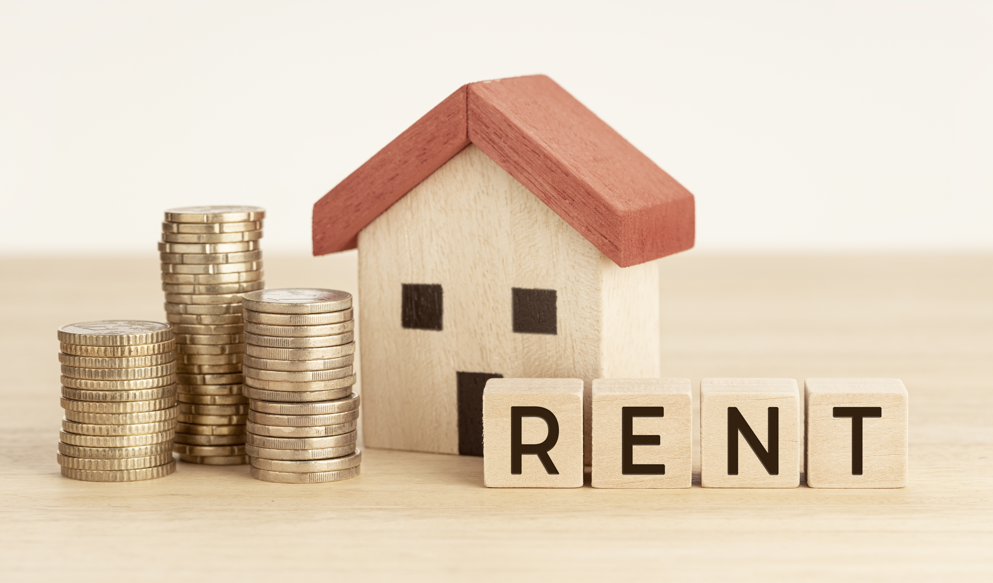Everything you need to know about renting out your house
Why rent out your property?
There are various reasons why individuals choose to rent out their property. Primarily, it's a financial decision. Renting out a property can cover mortgage payments and provide additional income. For some, it's a short-term solution while living elsewhere, while for others, it's a strategic move to build a business and expand their property portfolio.
How to rent out your house
Before you start, decide whether you'll manage the rental yourself or enlist the services of a letting agent like Darlows. You'll also need to determine how to offer your property – as a single unit or as a House in Multiple Occupation (HMO). HMOs typically generate higher income but involve additional expenses and responsibilities.
Consult your mortgage lender
If you're considering renting out your property for the first time, consult your mortgage lender. They may require you to switch to a 'buy to let' mortgage, especially for long-term rentals exceeding 12 months.
Register today! Be amongst the first to see new listings and off-market homes for sale in your area.
Understanding landlord licensing
In some areas of the UK, landlords are required to obtain licenses to ensure property management standards are met. These licenses come in three types:
- Mandatory licensing for HMOs
- Additional licensing for poorly managed HMOs
- Selective licensing, which may apply to all landlords in certain areas
Check with your local council for information on licensing schemes and associated fees.
Setting the rent
When setting the rent, think about what your property offers: its size, what's nearby, and what similar places are renting for. You want to attract contract-holders without scaring them off with sky-high prices. At the same time, you don't want to sell yourself short. Striking a balance is key. By finding the optimal rental price, you can attract suitable contract-holders while ensuring fair compensation for your property's value.
Tax and national insurance implications
Renting out your property can be a rewarding endeavour, but it's important to remember the tax implications. Essentially, any money you make from renting out your property is considered taxable income. However, you can subtract certain expenses, like repairs and maintenance, from your rental income before figuring out your taxable profit.
Mortgage interest payments can often be claimed back at a 20% tax relief rate, which can help ease the tax burden. How much income tax you owe depends on a few factors, like your overall income from various sources and the tax band you fall into.
The first £1,000 of rental income you earn is tax-free. Anything beyond that needs to be declared in a self-assessment form.
As for National Insurance contributions, if your rental profits exceed £6,725 per year and being a landlord is your main role, you may need to pay Class 2 National Insurance. This typically applies if you're renting out more than one property or if you're actively buying new properties.
Legal responsibilities for landlords
Gas and electricity safety
Landlords are legally required to conduct annual gas safety checks by a Gas Safe registered engineer and electrical safety checks every five years. You should ensure contract-holders receive copies of safety certificates.
Fire safety regulations
Landlords have a responsibility to ensure the safety of their contract-holders by installing smoke alarms on every floor of the property. Additionally, carbon monoxide alarms must be placed in rooms containing solid fuel burning appliances to detect any potential hazards. It's also essential to furnish the property with fire-resistant materials and ensure that adequate escape routes are available, in accordance with safety regulations.
Right to rent checks
Before finalizing a occupational contract, it's important that landlords check potential contract-holders have the legal right to rent in the UK. Neglecting to carry out these checks could lead to hefty fines.
Learn more about how landlords can check if their potential contract-holders are allowed to live in the UK on our special Right to Rent page.
Occupational contract
As part of the rental process, landlords should draft an occupational contract that clearly outlines the responsibilities of both parties. This document specifies the obligations of the landlord, such as maintaining the property in good condition, addressing any repairs promptly, and ensuring the safety of the contract-holders.
Standard templates for assured shorthold contracts are readily accessible online and can serve as a helpful starting point
Protecting contract-holder deposits
As a landlord, it's crucial to safeguard contract-holders' deposits in accordance with legal requirements. This involves placing the deposit in a government-backed scheme to ensure it is safe.
At the end of the occupation, it's your responsibility to return the deposit to the contract-holders, deducting only reasonable amounts for any damages or outstanding rent payments.
Landlord insurance
Though not obligatory, investing in landlord insurance is highly recommended as it provides a safety net against potential financial losses resulting from rent defaults or property damage.
Landlord insurance often includes extra perks like public liability protection, guarding against legal claims from contract-holders or visitors injured on the property. It also covers emergency expenses, like urgent repairs, providing added financial security for landlords.
Possession rights for landlords
Landlords can regain possession of their property through different means, such as serving Section 8 or Section 21 notices, which are formal legal notices. Alternatively, they can apply for court orders if necessary, or demonstrate abandonment if contract-holders have left without notice.
How can Darlows help?
Renting out your property can be a rewarding investment opportunity, but it's essential to understand the responsibilities and legal requirements involved. With proper planning and assistance, you can navigate the rental market successfully.
Managing a property can be overwhelming, especially for first-time landlords. Darlows offers comprehensive property management services, including contract-holder communication, repairs, and replacements. Reach out to us for expert assistance in renting out your property.








